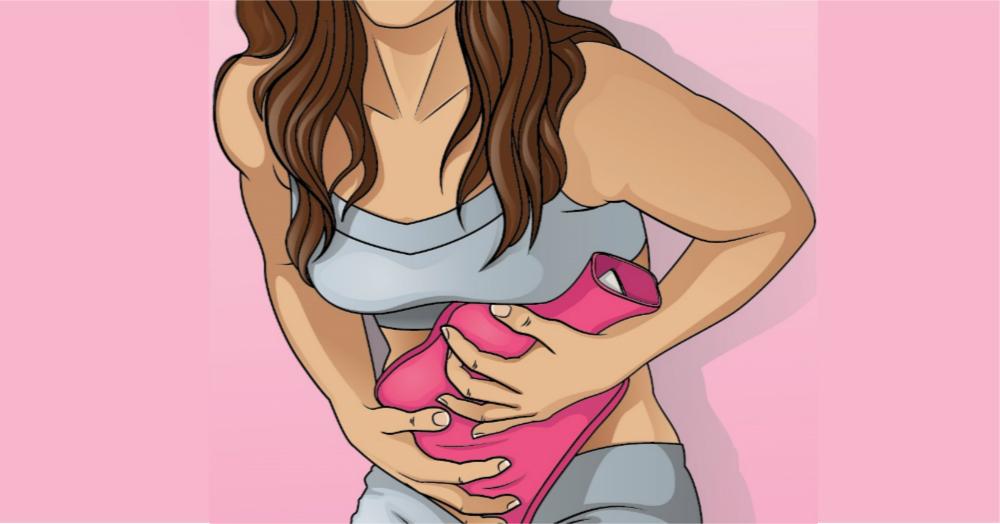Many of us often hesitate to visit a gynecologist or ask questions about irregular periods, hormonal imbalances and ‘vagina’ related problems. So, I sat down to answer some questions that often pop up in my head. A friend of mine was recently diagnosed with PCOS and when I asked her about it, she seemed to get uncomfortable. But why are we still uncomfortable talking about our ‘women’ issues?
It’s High Time That We Should Start Talking About PCOD & PCOS
According to AIIMS, 25% of women in India suffer from PCOS. Here is everything you need to know about the disease, its symptoms and the difference between PCOS and PCOD. It is advised that your should take pcos and pcod treatment if you have been diagnosed with it.
Also Read About How To Delay Periods On Your Wedding Night
What Is PCOD?
People suffering from PolyCystic Ovarian Disease (PCOD) have multiple small cysts in their ovaries which are mostly asymptomatic (produce or show no symptoms) and are found with a routine clinical examination. This condition is usually harmless and does not affect fertility, as women with polycystic ovaries may still possess hormonal balance and also ovulate regularly. PCOD is not actually a disease but a variant of normal ovaries, which can be easily treated. It may or may not cause irregular menstruation which can be regulated with a gynecologist’s visit.
What Is PCOS?
The PolyCystic Ovarian Syndrome (PCOS) pertains to your entire body. It is due to the combined effect of an excess of a hormone that causes ovulation, and something called insulin resistance, which leads to an increase in the level of insulin in your body. The raised levels stimulate an excess amount of the male hormone – testosterone, which is usually only produced in small quantities in women.
This disturbs the normal development of follicles in the ovaries. They do not mature fully and hence cause problems with ovulation resulting in delayed periods and reduced fertility. One difference between PCOS and PCOD is that PCOD is like the less worrisome accidental version of PCOS.

Also Read What Causes PCOD & Treatment In Marathi
The Symptoms Of PCOS
Women suffering from PCOS show two out of these three symptoms
– More than 12 cysts in the ovaries
– Hormonal imbalance (found through a blood test)
– You don’t ovulate every month which causes irregular periods or light periods.
Hormonal Imbalance Set Off Further Issues
– Weight gain
– Acne problems
– Thinning of hair
– Excess hair growth on the face and chest area
– Abdominal pains
Women suffering from PCOS might develop diabetes later in life or during pregnancy and are more likely to suffer from high blood pressure, cholesterol, with a tendency to gain weight around the tummy. Although polycystic ovaries may run in the family, it is not necessary that you might get it from your parent.
Precautionary Measures
– Being overweight or obese is not the underlying cause of PCOS. However, excessive fat can make insulin resistance worse. This may then cause the level of insulin to rise and contribute to further weight gain, leading to a vicious cycle.
– Consuming food with a low glycemic index, and generally eating healthy and exercising more will help. This means avoid white bread, pasta and white rice, and choosing wholemeal alternatives.
– Potatoes and sugary foods and drinks are also best avoided.
– Most fruit, vegetables, pulses and wholegrain foods have a low glycemic index and are healthy options.
– If you’re a smoker, quitting will help reduce vulnerability to PCOS.
Note: *This post has been written with contributions from Dr. Varshini Balan MBBS, Ramachandra Medical College.*
FAQs:
1. Do PCOS Patients Get Pregnant?
With the help of effective fertility treatments, it is possible that women with PCOS can get pregnant.
2. Can PCOS Be Cured?
No cure for PCOS has been found till yet. It is a lifelong disease. However, with treatment and medications, the symptoms of PCOS can be decreased and the patient may feel better than before.
3. Is Green Tea Good For PCOS?
It has some powerful antioxidants which decreases insulin resistance and testosterone in women which means it is good for PCOS.
4. Can You Have PCOS And Have Regular Periods?
Yes, it is possible to have PCOS and still have regular periods. However, there are chances of getting irregular periods or not having them altogether if someone is affected by it.
5. Can PCOS Be Left Untreated?
No, you should never do that. If you don’t take proper treatment or medication for PCOS then it can increase a woman’s risk for endometrial (lining of the uterus) cancer. So we would suggest you to take advice from a good gynecologist.
This story was updated in May 2019.




